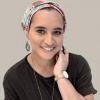N-Acetylcysteine for Trichotillomania: New Research

Online test
Find out the severity of your symptoms with this free online test

A recent study suggests that the use of n-acetylcysteine has had a remarkable effect in treating trichotillomania or hair-pulling syndrome in two patients. One patient, a 30 year-old female, saw the hair pulling behavior subside within two months. The second patient, a 14 year-old girl, stopped pulling her hair within two weeks. The n-acetylcysteine showed no side effects and seemed to be well tolerated and effective.
What is trichotillomania?
According to the Mayo Clinic, trichotillomania is related to obsessive-compulsive disorder, and causes people suffering from it to pull their hair out by its roots. The behavior can be mild in some people but uncontrollable in others. The condition causes bald patches to appear on the heads of people suffering from it, which they will go to great lengths to disguise.
People who suffer from trichotillomania feel an uncontrollable urge to pull out their hair, followed by a sense of relief when the hair is pulled out. Some will pull their hair automatically, without realizing they are doing it. Some sufferers will chew on their hair or rub it on themselves. People with the consition will pull their hair out in private out of a sense of shame about performing the act.
While the cause of trichotillomania is still unclear, it is thought to be likely caused by an imbalance in certain brain chemicals and some undetermined environmental factors. Some researchers postulate that the syndrome is triggered by over-activity in the human brain of a neurotransmitter called glutamate, which has a wide variety of physiological functions. Risk factors include family history, age (the syndrome seems to start between the ages of 11 and 13) and negative emotions that is be dealt with by the hair pulling. Complications from trichotillomania include emotional distress, social and job problems, and skin and hair damage. People who feel compelled to chew on or eat their hair can develop hair balls and other digestive problems.
Trichotillomania treatment
Trichotillomania is treated with psychotherapy, including habit modification. Some patients are taught to either touch their ear or clench their fists when the urge to pull their hair comes over them. Cognitive therapy is sometimes used to help the patient understand what some of the underlying causes of the compulsions are to better be able to deal with it. Acceptance therapy is used to help the person with the syndrome accept the compulsion without giving in to it.
Sometimes, a health care provider will prescribe medication to help alleviate the manifestation of trichotillomania. Antidepressants are used to deal with whatever negative emotions might occur that trigger the hair pulling. More recently, n-acetylcysteine has been used to deal with the neurotransmitters in the brain that are thought to be a direct cause of the hair-pulling syndrome. Medications have side effects and should only be resorted to under the care of a doctor.
What is n-acetylcysteine?
According to WebMD, n-acetylcysteine is an over-the-counter supplement that is derived from the amino acid L-cysteine. It is used for a variety of medical purposes, such as counteracting Tylenol and carbon monoxide poisoning, chest pain caused by angina, Lou Gehrig’s disease, Alzheimer’s disease, and other illnesses. The use of n-acetylcysteine is also thought to mitigate against the risk of cancer, heart disease, and strokes. It is also used to combat certain lung diseases and liver damage due to alcoholism.

How does n-acetylcysteine treat trichotillomania?
According to the NCBI, n-acetylcysteine is beginning to be explored as a treatment for a number of psychiatric ailments, including bi-polar disorder, certain drug and other addictions, and obsessive compulsive disorders such as trichotillomania. Researchers believe that the ingestion of n-acetylcysteine seems to regulate the production of dopamine and glutamate. The over-abundance of these neurotransmitters tends to lead to disorders such as trichotillomania.
Besides the study referenced above, a double-blind, placebo-controlled trial for n-acetylcysteine was undertaken for the treatment of 50 people, 45 men and 5 women, who suffered from trichotillomania. The patients were given either 1200 mg of n-acetylcysteine or the placebo over a period of six weeks followed by another six weeks of 2400 mg of n-acetylcysteine or the placebo. Half the group was also taking other medication and four underwent psychotherapy.
As a result, the administration of n-acetylcysteine was shown to decrease the instances of hair pulling substantially as compared to the group that was taking the placebo. The effects were noted during the ninth week of the trial and continued to the end.
Incidentally, the use of n-acetylcysteine was seen to have some benefit for other grooming disorders, such as nail biting and skin picking. More controlled studies are needed for those particular syndromes, however.
The bottom line
The results of the studies referenced above strongly suggest that n-acetylcysteine could be an effective treatment for trichotillomania. Since the supplement is available over the counter, one might be tempted to buy some from the pharmacy or the health food store and try it out on one’s own. But any substance that affects brain chemistry should be approached with caution. Even ordinary supplements can cause unforeseen interactions with medications, other supplements, and even food.
Anyone seeking n-acetylcysteine to treat either their trichotillomania or who is concerned about a loved one suffering from the syndrome should seek the advice of a doctor in its use. However, it appears that n-acetylcysteine holds a great deal of promise for mitigating a compulsion that not only causes social embarrassment, but can lead to physical health problems, as well.
Online test
Find out the severity of your symptoms with this free online test
Start your journey with TrichStop
Take control of your life and find freedom from hair pulling through professional therapy and evidence-based behavioral techniques.
Start Now